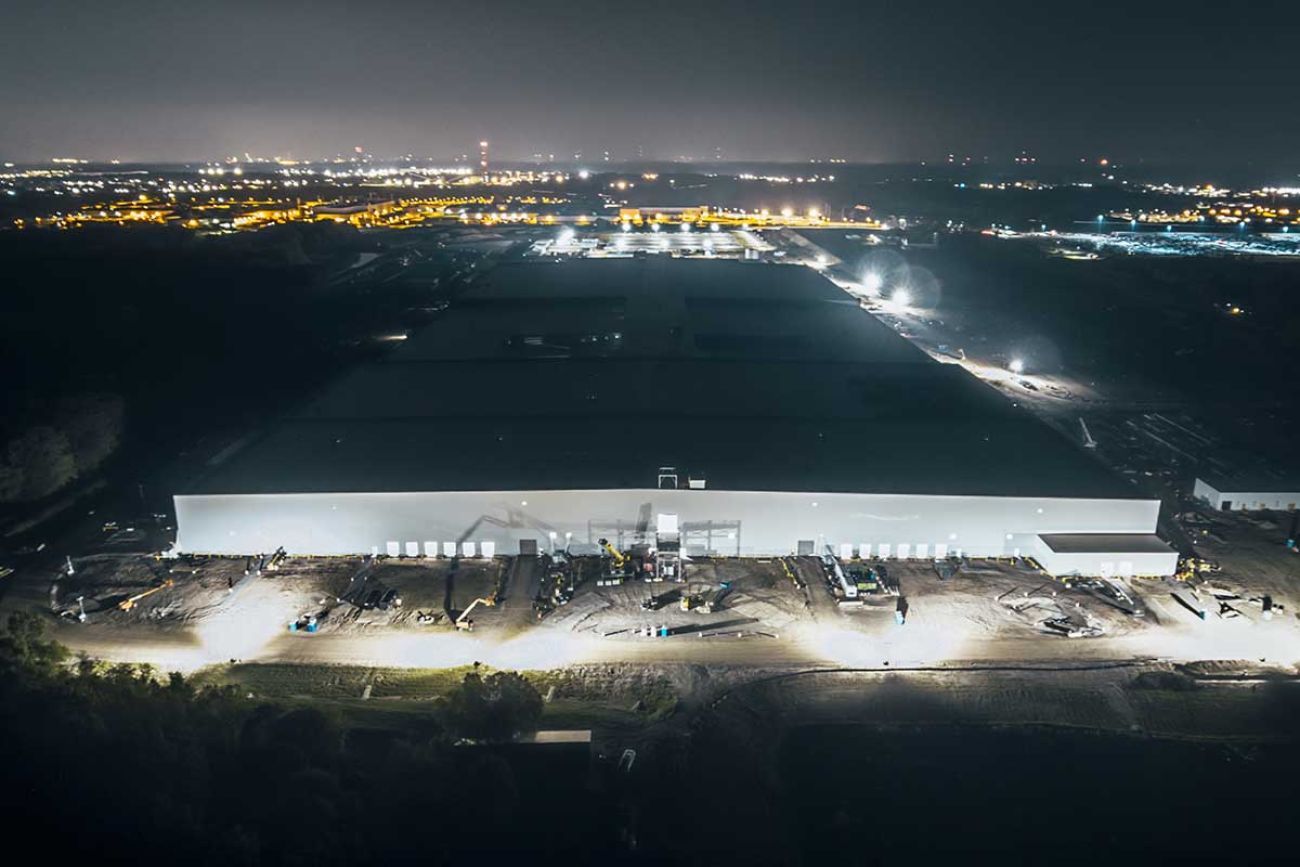General Motors has decided to sell its stake in the nearly completed Ultium Cells LLC battery plant in Delta Township, Michigan. This marks a significant shift in the company’s ambitious plans to make Michigan a central electric vehicle (EV) manufacturing hub. Once heralded as a cornerstone of Michigan’s transition to the EV era, the factory is now set to be fully owned and operated by GM’s joint venture partner, South Korea’s LG Energy Solution.
The sale announcement comes at a time of uncertainty for the EV industry, which has faced a slowdown in growth after years of heavy investment. Despite the optimism surrounding the factory’s construction, the plant’s opening has been delayed multiple times, and the outlook for the industry is now clouded by global production challenges and shifting political dynamics.
The Delta Township battery plant, expected to cost up to $2.5 billion, is part of a broader push by GM and Michigan to accelerate EV production in the state. When it was first announced in early 2022, the plant was touted as a key component of making Michigan the “epicenter” of EV manufacturing. It was to create up to 1,700 jobs in the region, which would have bolstered the state’s position in the electric vehicle supply chain. Michigan officials approved $186 million in state subsidies for the project, marking the largest incentives package in the state’s history. The investment was part of the state’s Strategic Outreach and Attraction Reserve (SOAR) Fund, a bipartisan initiative launched by Governor Gretchen Whitmer to allocate $2 billion for large-scale economic development projects in high-priority industries like electric vehicle production.
However, as EV adoption has yet to progress as quickly as expected, the economic realities of such massive investments have begun to raise concerns. A recent investigation by Bridge Michigan revealed that the state has already spent at least 91% of the $186 million allocated to the battery plant, including $120 million directly given to GM. Additional tax breaks on the property are estimated at $158 million. With these significant public resources committed to the project, questions have begun to surface about whether the state will receive the return on investment it anticipated.
Slowed EV Demand and Shifting Priorities

The decision by GM to sell its stake in the Delta Township plant highlights some of the challenges facing the EV industry. Despite substantial investments in battery production and the promise of electric vehicles taking over the auto market, demand for EVs has remained the same at the rate anticipated just a few years ago. Global production has slowed, and while GM continues to push forward with its EV strategy, profitability has yet to be fully realized. GM’s Chief Financial Officer Paul Jacobson recently noted that while the company is approaching profitability in its EV segment, it still faces significant hurdles.
The sale also comes as the political landscape in Michigan and the U.S. shifts. With the election of President-elect Donald Trump, who has indicated his intention to cut federal subsidies for electric vehicles, the long-term prospects for the EV industry may be in question. If these subsidies are reduced or eliminated, it could further strain the already financially challenging EV market.
Despite these challenges, Michigan’s state government, including the Michigan Economic Development Corporation (MEDC), has pledged to honor its original commitments. MEDC spokesperson Otie McKinley confirmed that the state’s incentive deal remains despite GM’s decision to sell its stake in the plant. “The commitment to move forward with the Ultium facility in Delta Township remains,” McKinley said, emphasizing that the factory will still bring “thousands of good-paying, permanent jobs to the community.” The state plans to review the contracts to determine if any amendments are necessary in light of the ownership change.
The battery plant, which is expected to have a production capacity of several gigawatt-hours annually, will still be crucial to GM’s EV strategy. Although the facility’s opening has been delayed from 2024 to 2025, hiring at the site is ramping up. According to GM, nearly 100 employees have already been hired for the facility, and the company says it remains on track to meet its employment goals. Ultium Cells, the joint venture between GM and LG Energy Solution, will continue with construction and ramping up production at the plant, which is still installing equipment.
A Shift in Focus for GM

The decision to sell the plant’s stake to LG Energy Solution reflects GM’s evolving focus in the EV space. While GM has made massive investments in EV manufacturing, including battery production, it has faced challenges in managing the capital-intensive nature of the transition. GM’s focus on scaling EV production will continue, but the company is adjusting its strategy to align with current market conditions.
The decision could also reflect broader industry trends, where partnerships and joint ventures with established global players like LG Energy Solution are becoming increasingly common. By selling its stake in the battery factory, GM may reduce its exposure to the financial risks associated with such large-scale investments while continuing to benefit from its partners’ technological and manufacturing expertise.
Uncertainty Ahead: Michigan’s EV Future
The future of Michigan as a hub for EV manufacturing remains uncertain as challenges in the global EV market persist. While the state has significantly invested in attracting EV battery factories, many projects have faced delays. They still need to deliver the expected returns regarding jobs or economic growth. The Ultium Cells battery plant is still slated to employ up to 1,700 people once it opens. Still, questions need to be answered about whether these jobs will materialize as planned or whether further delays will occur.
As Michigan’s legislative session nears its conclusion, some of Governor Whitmer’s economic development initiatives are stalled, and there is increasing bipartisan scrutiny of the state’s large-scale incentive programs. Lawmakers are questioning the long-term value of these investments, particularly in the face of slower-than-expected EV adoption and the uncertainty around federal subsidies.
In the coming years, Michigan will need to navigate a shifting political and economic landscape to ensure its investments in EV manufacturing pay off. While the state’s commitment to the Ultium Cells facility remains strong, the ongoing challenges in the EV industry and the changing political climate could complicate the path forward than originally anticipated.
As GM and its partners move forward with the Delta Township plant, all eyes will be on whether the factory and the larger EV investment strategy can ultimately deliver on their promises to the people of Michigan.

